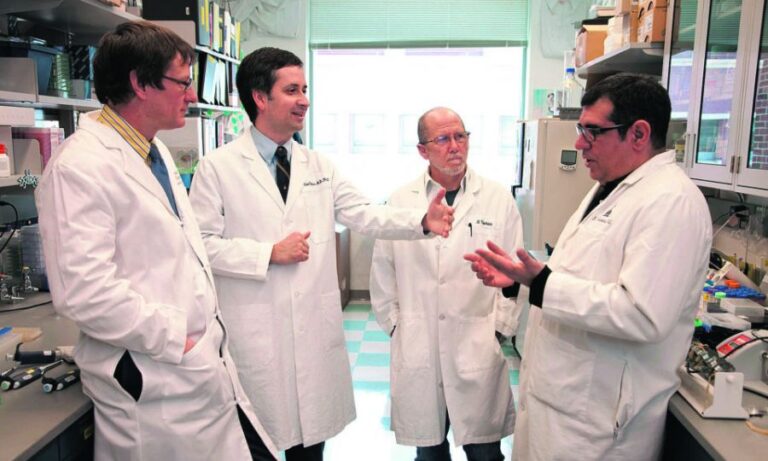A growing number of cancer patients are finding a cure through innovative diagnostic and therapeutic techniques, especially if the disease is detected early.
“Reality exceeds our expectations,” say leading Greek scientists attending the 4th Diaspora Oncology Conference in Athens, while in the not-so-distant future the majority of oncologists’ interventions will be performed before surgery, and some cancers might not even need surgery.
“For the breast, there is mammography, for the lung, there is PET/CT (positron emission tomography and computed tomography), for the colon, there is colonoscopy. For other cancers, we do not have corresponding diagnostic tools, that is, screening tests,” said Nickolas Papadopoulos, professor of oncology and pathology at the university’s medical faculty. Johns Hopkins.
“We started by asking a question and at the same time a great scientific challenge: how to diagnose cancerous tumors in time and at an early stage in the general population, that is to say in people without heredity, without symptoms, without you knowing they had cancer – before their tumors metastasized? Papadopoulos told Kathimerini.
Thus began a long and arduous research journey for him and his colleagues that led to the development of CancerSEEK, initially for the diagnosis of eight cancers – lung, breast, pancreatic, colon, ovarian, liver, the stomach and esophagus – which account for more than 60% of deaths.
The test analyzes DNA circulating in the blood to detect the presence or absence of mutations in 16 genes and eight proteins linked to cancer. In 2020, his team reached another milestone by conducting the first clinical research involving 10,000 volunteers and publishing overwhelmingly positive results, opening the prospect of detecting 50 different forms of cancer at an early stage.
Currently, two companies in the United States are preparing to launch the test domestically, but for its creator, its sensitivity needs to be evaluated in more detail in future studies to minimize the risk of misdiagnosis.


